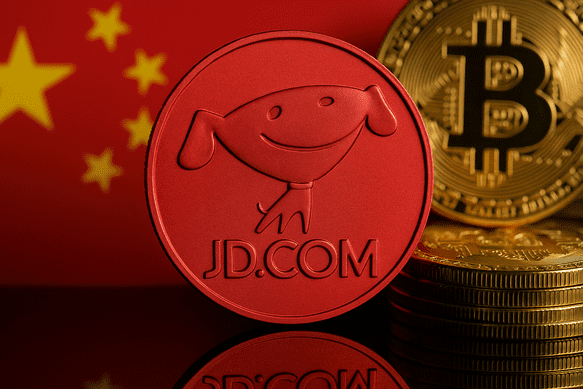JD.com will seek a stablecoin license in countries with major sovereign currencies. Liu Qiangdong, the company’s founder, shared the plan during a June 18 media briefing in Beijing.
“We hope to apply for our stablecoin license in all major sovereign currency countries in the world,”
Liu said.
He explained that the JD.com stablecoin would cut cross-border payment costs by 90% and reduce settlement time to 10 seconds, replacing the traditional SWIFT system’s timeline of up to four days.
JD.com stablecoin to start with B2B transactions
The JD.com stablecoin will begin with B2B payments. Liu said it may later expand to consumer transactions.
“After B-side payment is completed, we can move toward C-side payment,”
he stated.
Liu emphasized the company will continue to focus on its existing supply chain-based business models. “We are not going to do new models anymore,” he said.
“But we will deepen and strengthen the existing seven or eight business models […] and make them international businesses.”
He acknowledged potential risks.
“We may fail, but that is how business works,”
he said.
China accelerates digital yuan strategy
On June 19, People’s Bank of China Governor Pan Gongsheng announced plans for an international digital yuan operations center in Shanghai.
The initiative aims to strengthen the digital yuan and decrease global dependency on the U.S. dollar.
JD.com began using China’s Digital Currency Electronic Payment (DCEP) in 2021 for salaries, business payments, and cross-bank settlements.
GENIUS Act establishes U.S. stablecoin regulation
The GENIUS Act (Guiding and Establishing National Innovation for US Stablecoins) passed the U.S. Senate on June 18 with a 68–30 vote. The bill introduces federal regulations for stablecoins, covering issuance and payment use.
In May, the act failed its first cloture vote due to opposition from Democrats, who raised concerns about Donald Trump’s connection to World Liberty Financial, the issuer of the USD1 stablecoin.
After securing cloture last week, the bill passed the Senate floor vote. It now moves to the House of Representatives, where additional amendments may be introduced.
Interest in stablecoin regulation continues to grow. In addition to China’s and the U.S.’s actions, countries like Malaysia have opened platforms such as the Digital Asset Hub to test programmable money and stablecoins.
Circle CEO Jeremy Allaire commented on current trends, noting that digital dollars had yet to reach mass developer adoption.
Disclosure:This article does not contain investment advice or recommendations. Every investment and trading move involves risk, and readers should conduct their own research when making a decision.
Kriptoworld.com accepts no liability for any errors in the articles or for any financial loss resulting from incorrect information.


